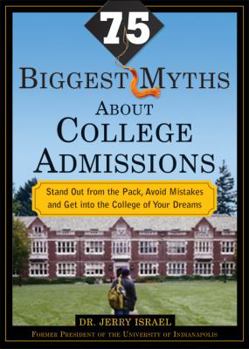The 75 Biggest Myths about College Admissions: Stand Out from the Pack, Avoid Mistakes, and Get Into the College of Your Dreams
ADMISSIONS SECRETS COLLEGES DON'T WANT YOU TO KNOW
THE COLLEGE ADMISSIONS PROCESS IS INCREDIBLY IMPORTANT ... and incredibly confusing. You have probably heard countless "facts" as to what works, what colleges want to see, and how to get into competitive colleges. Don't believe the hype Following the wrong college application myths can cost you time, money, and most important, the chance to get accepted into the school of your dreams.
MYTH:
-- Colleges are very choosy about who gets in.
-- You can find all kinds of students on any campus.
-- Colleges need to charge an application fee.
-- Colleges have a well-thought-out financial assistance strategy.
-- Colleges only know what you tell them about you.
The 75 Biggest Myths about College Admissions gives you all the answers you need to approach this important journey correctly--busting all the myths that students hear and colleges want you to believe.
By exposing the truth and setting you on the right path, The 75 Biggest Myths about College Admissions gives you the edge you need to avoid wrong turns and wasted time and get a few steps ahead in the application process.





